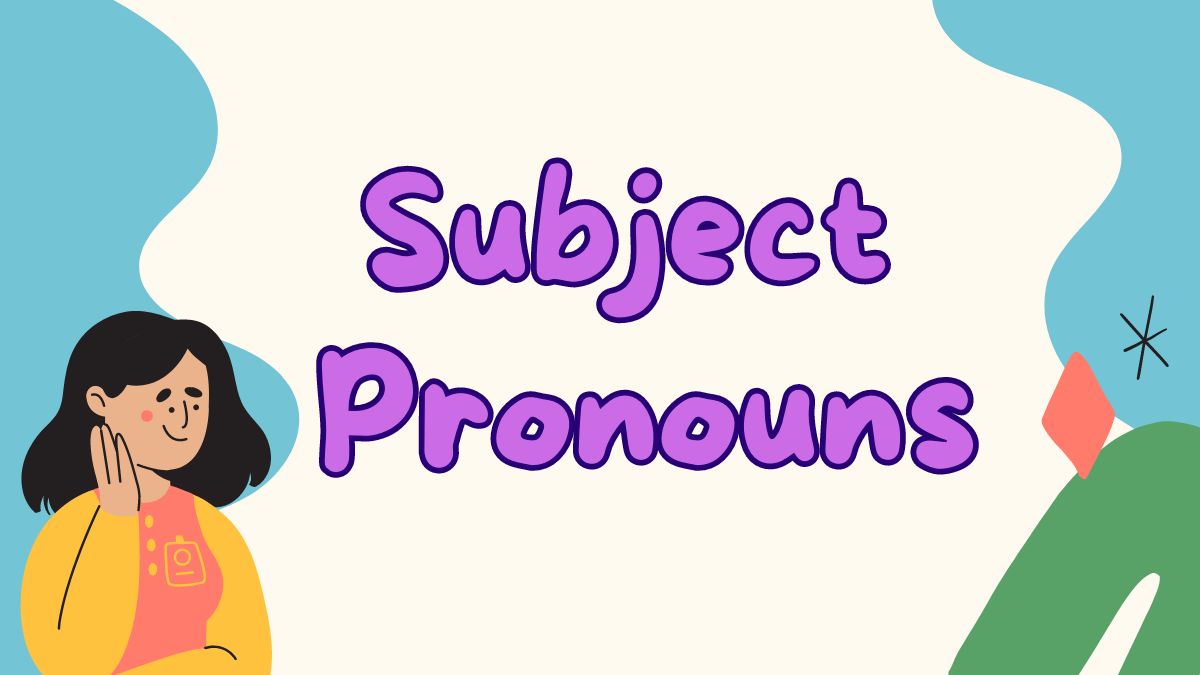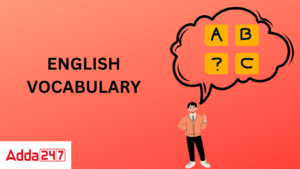The subject pronouns, as the name suggests, works like a subject. It is quite opposite to that of the other types of pronouns, the object pronouns. These special pronouns form a special part of the pronouns family. In this post, we will be providing students with all the details related to these special pronouns along with their examples. We must tell you that subject pronouns are one of the favorite topics for examiners, so you must learn it properly to master it.
Subject Pronouns
A subject pronoun is simply a pronoun that replaces a noun as the subject in a sentence. Keep in mind, the subject of a sentence is the individual or object that carries out the action of a verb. Upon closer examination, it becomes apparent that a subject pronoun functions as the subject of a verb, whereas an object pronoun typically serves as a grammatical object. These fascinating pronouns are often hard to understand due to its function as a pronoun as well as a subject.
Subject Pronouns Definition
A subject pronoun is a word that substitutes for a noun. It serves as the subject in the sentence. Subject pronouns typically come at the beginning of a sentence, right before the verb, to show who is performing the action. Subject pronouns are also sometimes known as nominative pronouns.
As per the Collins Dictionary, a subject pronoun is “a pronoun which takes the place of a subject in a sentence, such as (in English) ‘I’, ‘you’, or ‘we’.”
Subject Pronouns Examples
Some examples of the subject pronouns are given hereunder. These special pronouns are highlighted in bold letters in the following examples.
- She is writing a letter to her cousin. (The pronoun ‘she’ is the subject in the sentence that is currently performing the action of writing a letter to her cousin)
- Did you get the book you were looking for? (The pronoun ‘you’ is the subject pronoun in the sentence)
- They will be playing the final match in Australia. (The pronoun ‘they’ is the subject who will be playing the final match in Australia)
- I go to school every day. (The pronoun ‘I’ is doing the action of going to school every day and is the subject in the sentence)
- We are travelling to Paris next week. (The pronoun ‘we’ refers to the subject who is currently doing the action of travelling to Paris)
- He will be meeting Nina tomorrow. (The pronoun ‘he’ is the subject who will be performing the action of meeting Nina the next day)
Subject Pronouns Usage
A subject pronoun may appear in a sentence’s middle, after the verb, or apart from the verb in more complicated phrase forms. It could come before or after the verb, for instance, or it might be a component of a question or relative sentence. Candidates can understand other uses of the subject pronoun by taking a look at the following examples.
- The woman who had spoken to me introduced herself as Clara.
- He always goes out for drinks on Friday night.
- Did we ever visit Egypt before?
- She and I, despite our differences, have a surprisingly good relationship.
Subject Pronouns in English
Subject pronouns are the pronouns that carry out the action in a sentence. The pronouns include I, you, he, she, we, they, and who. Subject pronouns, along with any noun carrying out the primary verb in a sentence, are considered subjects and fall under the category of subjective case (nominative case). English grammar mandates that the subject precede the verb in a sentence (except in interrogative sentences).
I make cookies every Sunday for my co-workers.
In this sentence, the one who is performing the action of making is “I”. In order to verify the correct case, you must be capable of substituting I with any other subject pronoun, adjusting the verb to match the person and number, and forming a coherent sentence.
While it may appear unnecessary in a straightforward statement like this, developing the habit of properly checking case is important for examining complex sentences. Keep in mind that subject nouns are always the ones performing actions in sentences. Subject nouns should be used if action is suggested.
Subject Pronouns Exercise
After understanding the meaning and usage of subject pronouns, candidates should solve the following questions by picking the correct options. The answers to these questions have also been provided so that candidates can assess their understanding level and know what wrong they are doing in their assessment.
1) Correct me if I’m wrong, but I think __________ enjoy studying.
(A) He
(B) She
(C) You
(D) I
2) __________ kicked the ball so hard that his shoe came off.
(A) She
(B) They
(C) He
(D) It
3) __________ enjoys going to the gym early each morning.
(A) I
(B) She
(C) They
(D) We
4) __________ puts ketchup on everything she eats.
(A) He
(B) She
(C) We
(D) It
5) __________ prefer hiking to movies.
(A) She
(B) He
(C) We
(D) It
6) You can have ice cream after __________ finish your dinner.
(A) We
(B) You
(C) It
(D) She
7) __________ is raining again.
(A) It
(B) She
(C) He
(D) We
8) The dog stole Tara’s ice cream before __________ ran away.
(A) You
(B) I
(C) They
(D) It
Answers:
- C – Correct me if I’m wrong, but I think you enjoy studying.
- C – He kicked the ball so hard that his shoe came off.
- B – She enjoys going to the gym early each morning.
- B – She puts ketchup on everything she eats.
- C – We prefer hiking to movies.
- B – You can have ice cream after you finish your dinner.
- A – It is raining again.
- D – The dog stole Tara’s ice cream before it ran away.
| Check Related Articles | ||
| Relative Pronouns | Personal Pronouns | Possessive Pronoun |
| Reflexive Pronoun | Object Pronouns | Abstract Nouns |
| Common Nouns | Collective Nouns | Compound Nouns |











 Vocabulary Words with Meaning and Senten...
Vocabulary Words with Meaning and Senten...
 Past Perfect Tense: Definition, Formula,...
Past Perfect Tense: Definition, Formula,...
 Hyperbole- Explanation, Definition, Exam...
Hyperbole- Explanation, Definition, Exam...














